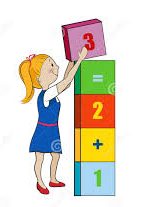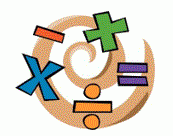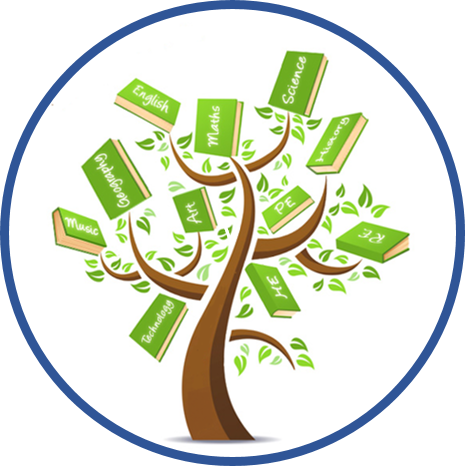
Early Mathematics is the development of young children’s skills from being able to count and recognise shape, to the ability to recognise, order, compare and calculate increasingly larger numbers in a variety of ways, measure, read time, handle money, fluently recall number facts, recognise shape and their properties and provides them with the skills in how to problem solve, reason and be resilient within their learning.
Children do not automatically learn this and skills need to be specifically taught that are sequential and progressive to develop knowledge and skills which can be securely demonstrated by our pupils. Providing high-quality learning experiences, allows us to create the necessary foundation to help

children master essential Mathematical understanding and problem solving skills.
Once children have these necessary foundations, their journey in Mathematics continues through increasingly more complicated calculations, Mathematical concepts, reasoning and problem solving that both engage and further develop their skills as a Mathematician.
Maths is an essential element of the Castlechurch curriculum with clear, progressive learning that is child centred, creating curious resilient learners.
![]()

Our challenging and creative Mathematics curriculum aims to enable all children to have a sound understanding of all mathematical concepts. Children are provided with an exciting curriculum that encompasses the CPAR approach (Concrete, Pictorial, Abstract and Reasoning), which promotes children to make links between practical equipment, pictures and abstract numbers as all children learn in different ways. The CPAR approach helps children learn new ideas and build on their existing knowledge by introducing abstract concepts in a more familiar and tangible way.
At Castlechurch, we build on children’s knowledge and skills with rich connections across mathematical ideas to develop fluency, mathematical reasoning and competence in solving increasingly sophisticated problems.
We recognise the importance of providing a high quality, vocabulary rich Maths curriculum that is both challenging and enjoyable, whilst expanding their inquisitive and resilient minds.
When completing maths reasoning, we use RUCSAC to help build their independence and resilience to solve mathematical problems.

What makes a good mathematician Sept 2022
![]()
At Castlechurch we aim to achieve the following from our Mathematics curriculum:
- ‘Mastery’ is something we want all children to achieve and involves utilising a range of strategies to help children develop a
 deep and secure knowledge and understanding of Maths.
deep and secure knowledge and understanding of Maths. - All staff model positive attitudes towards Maths and a belief that all pupils can succeed.
- An enjoyment and curiosity of mathematics and for children to feel confident to become successful;
- Children’s abilities to use and apply mathematics to solve problems in both the classroom and in ‘real life’ contexts;
- A confidence to communicate ideas in written form and orally;
- Independent and collaborative ways of working, encouraging children to share ideas and solve problems together;
- A wide range of mathematical vocabulary to be modelled and used in the classroom;
- The children’s ability to recall mental facts accurately and quickly and using effective written calculation methods;
- Children’s logical thinking, reasoning and ability to problem solve as transferable life skills.
Castlechurch Maths Policy January 2022
Useful links to support home learning
Times Tables Rock Stars – Times Tables Rock Stars (ttrockstars.com)
Hit the Button - Quick fire maths practise for 6-11 year olds (topmarks.co.uk)
Times tables games - Learn them all here!
Daily 10 - Mental Maths Challenge - Topmarks
NumBots | Motivational maths practice for schools and families.

To gain more information on Castlechurch's calculation policy, Mathematics unit and lesson pathway, progressive curriculum, specific Mathematical vocabulary or year group break down, please click on the drop down boxes below.
 The calculation policy shows the methods we teach to solve addition, subtraction, multiplication and division problems and the progression across the school. At Castelchurch, children are taught a range of mental and pencil-and-paper methods, and encouraged to consider when different methods are appropriate and efficient.
The calculation policy shows the methods we teach to solve addition, subtraction, multiplication and division problems and the progression across the school. At Castelchurch, children are taught a range of mental and pencil-and-paper methods, and encouraged to consider when different methods are appropriate and efficient.
Addition-and-subtraction-calculation-policy
Multiplication-and-Division-calculation-policy
 The document below shows a sequential, progressive pathway that a Mathematics unit and lesson may follow. The key elements which we believe are important to incorporate into our Mathematics lessons are highlighted in this pathway in order to: recall, deepen and build on previous learning to secure key concepts.
The document below shows a sequential, progressive pathway that a Mathematics unit and lesson may follow. The key elements which we believe are important to incorporate into our Mathematics lessons are highlighted in this pathway in order to: recall, deepen and build on previous learning to secure key concepts.
 To ensure children are taught and remember the appropriate knowledge and skills relating to Mathematics, we have created a progressive breakdown of the national curriculum expectations. This draws on the skills and knowledge being taught across all subject areas and hopes to contribute to the development of key concepts and themes in a deep and connected way.
To ensure children are taught and remember the appropriate knowledge and skills relating to Mathematics, we have created a progressive breakdown of the national curriculum expectations. This draws on the skills and knowledge being taught across all subject areas and hopes to contribute to the development of key concepts and themes in a deep and connected way.
 At Castlechurch, we understand that mathematical language is crucial to children’s mathematical thinking so we introduce new words from the curriculum in a suitable context, with relevant real objects, mathematical apparatus, pictures and/or diagrams, explaining their meanings carefully. Key vocabulary used in a unit of work are displayed on the Maths working walls to embed this vocabulary but also to ensure it is accessible at all times.
At Castlechurch, we understand that mathematical language is crucial to children’s mathematical thinking so we introduce new words from the curriculum in a suitable context, with relevant real objects, mathematical apparatus, pictures and/or diagrams, explaining their meanings carefully. Key vocabulary used in a unit of work are displayed on the Maths working walls to embed this vocabulary but also to ensure it is accessible at all times.
All children need regular, planned opportunities to develop their mathematical vocabulary in order that they become familiar with the language and are not confused by mathematical terms. They need to acquire the words necessary for them to take part in lessons and activities, respond to questions correctly and carry out tasks successfully.
In most lessons children work in pairs; discussing, explaining, disagreeing and proving maths ideas as we believe these are integral to building understanding. Children work together so that through their dialogue they can develop a much stronger understanding.
Effective questioning
Whilst children may be able to remember new terms, learning the meanings of words requires more than memorisation. To help children understand mathematical ideas and support them in using mathematical terms correctly, it is vital to employ a variety of questioning techniques to promote good dialogue in mathematics lessons. As teachers, we should be asking a variety of types of question. Effective questioning will include both closed questions with a single correct answer (What sort of number do you get when you add two odd numbers together?) and open questions with a number of possible answers to encourage children to think more deeply (What sort of numbers do you get when you add three consecutive numbers together?). Encouraging children to explain their thinking and methods is also vitally important. The answers given will provide teachers with useful assessment opportunities and evidence of children’s level of understanding. Follow-up questions such as How do you know? or What makes you think that? as well as Can you give me another example? are essential to probe, develop and consolidate understanding.
Planning open questions that have more than one answer or more than one route to arrive at an answer, gives more children a chance to respond and embed the vocabulary that they have been taught. Open questions can also offer greater challenge and extension opportunities for higher-attaining children, encouraging them to search for alternative, less obvious or more general answers.
Useful question starters
When planning open questions, the following question stems and sentence starters can be helpful:
- Explain why ...
- I wonder why ...
- How do you know ...?
- Does anyone know ...?
- What will happen if ...?
- How will you know ...?
- How can we find out ...?
- Can you describe ...?
- Convince me ...
- Is there another way ...?
- What makes you think that ...?
 To ensure the highest emphasis is placed on both the teaching and the learning of new knowledge and skills we have also clarified when it will take place within our topics and the subject specific gains our children will make in terms of what they will know and be able to do.
To ensure the highest emphasis is placed on both the teaching and the learning of new knowledge and skills we have also clarified when it will take place within our topics and the subject specific gains our children will make in terms of what they will know and be able to do.
wrm-reception-scheme-guidance-for-teachers-and-FAQs-autumn-2021
